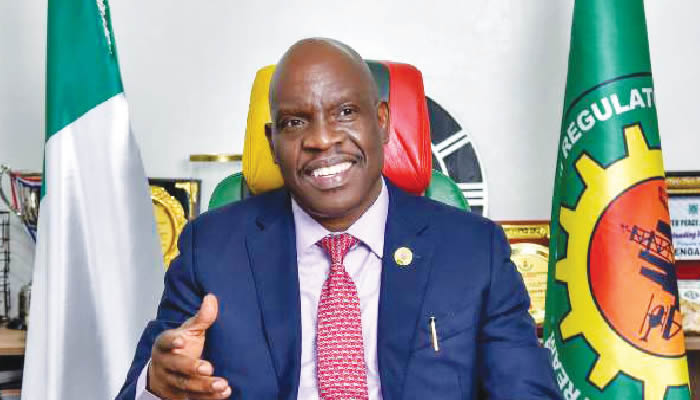The Nigerian Upstream Petroleum Regulatory Commission says it is taking bold steps to reclaim the country’s dominant position in Africa’s oil and gas investment space after its share of sub-Saharan Africa’s upstream inflows plunged from 44 per cent in 2014 to 30 per cent in 2022.
Speaking at the 50th anniversary conference of the Nigerian Association of Petroleum Explorationists in Lagos, Commission Chief Executive, Gbenga Komolafe, said the agency’s newly unveiled Regulatory Action Plan is designed to serve both as a corrective and a catalyst for attracting fresh capital into Nigeria’s upstream sector.
“In a fiercely competitive global environment, the RAP signals to domestic and international investors that Nigeria is ready to lead with clarity, confidence, and competitiveness,” Komolafe stated.
“In a fiercely competitive global environment, the RAP serves as both a corrective and catalytic framework to boost Nigeria’s share of sub-Saharan Africa’s upstream investments, which hitherto had dropped from 44 per cent in 2014 to just 30 per cent in 2022.
“It reflects the commission’s readiness to confront the realities of the present, restore investor confidence, and elevate Nigeria’s global standing as a prime investment destination in the upstream oil and gas space,” he said.
He explained that the plan, which aligns with the 10-Year Strategic Plan of the NUPRC, focuses on dismantling long-standing bottlenecks, introducing fiscally attractive frameworks for offshore, deepwater, and gas-based investments, and delivering transparent and timely licensing rounds.
According to Komolafe, the RAP is also anchored on the provisions of the Petroleum Industry Act, which ushered in a new era of performance-based governance, investor-focused fiscal regimes, and regulatory certainty.
He added that beyond restoring Nigeria’s lost market share in Africa’s upstream sector, the commission aims to reposition the country as a prime global investment destination by boosting investor confidence, accelerating project approvals, and leveraging high-quality data to de-risk exploration.
Komolafe noted that these reforms are already showing signs of traction, with recent bid rounds recording unprecedented transparency and competitiveness, while the country’s rig count has surged from eight in 2021 to 43, with a target of 50 by year-end.
He said the commission had embedded data intelligence and digital innovation into upstream operations. According to him, the revitalised National Data Repository, Africa’s largest digital petroleum data bank, now enables seamless access to high-quality geoscientific data, improving investment decision-making. Through seismic reprocessing, advanced data-driven basin analysis, and targeted data acquisition.
He explained that the recent bid rounds recorded “unprecedented” successes. These include the 57 PPL awards of 2022, the 2022 Mini-Bid Round, and the 2024 Licensing Round.
“Each of these rounds was conducted with unprecedented transparency, unmatched competitiveness, and remarkable investor engagement. Fiscal reform has indeed been a key lever. The commission has implemented competitive royalty regimes, zero hydrocarbon tax for certain projects, and other fiscal consolidation mechanisms tailored to support project viability,” he said.
On the Project One Million Barrels Initiative launched in 2024, he said Nigeria is actively ramping up crude oil production by reactivating dormant fields, fast-tracking regulatory approvals, and enhancing operational efficiencies across the upstream value chain.
“With a clear target of increasing production from 1.46 million barrels per day to 2.5 million bpd by 2026, the initiative has already demonstrated strong momentum with current unreconciled daily production averaging 1.7 – 1.83 million bpd.
“Equally crucial is the protection and optimisation of national hydrocarbon assets. The approval of 37 new evacuation routes, coupled with intensified collaboration with national security agencies, has significantly curtailed crude theft and enhanced accountability across the industry. At the same time, the enforcement of the Domestic Crude Supply Obligation is securing consistent feedstock to local refineries, strengthening Nigeria’s internal supply chains and building long-term economic resilience,” Komolafe stated.















